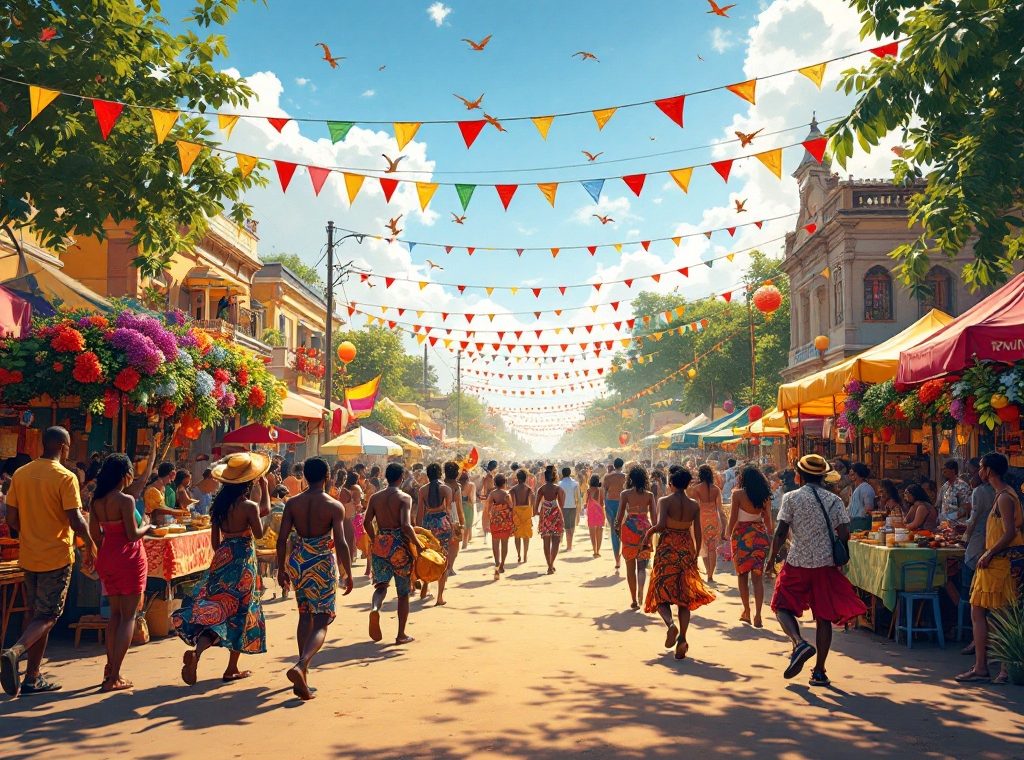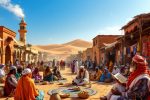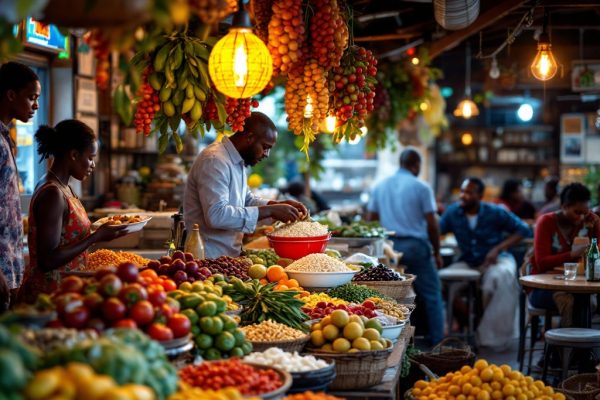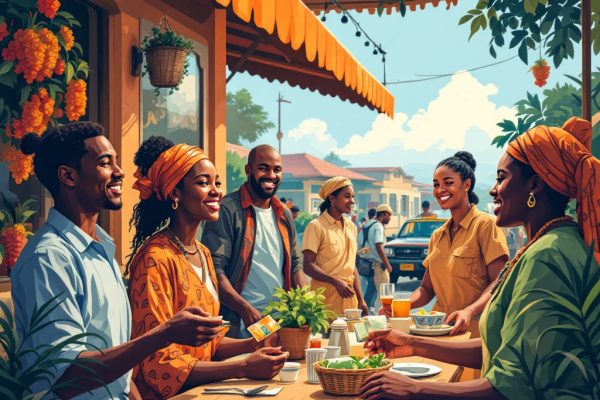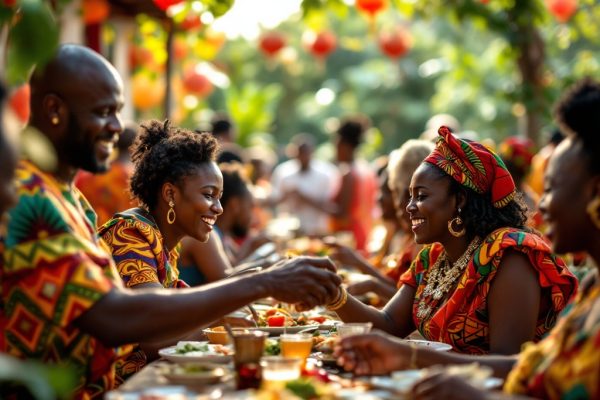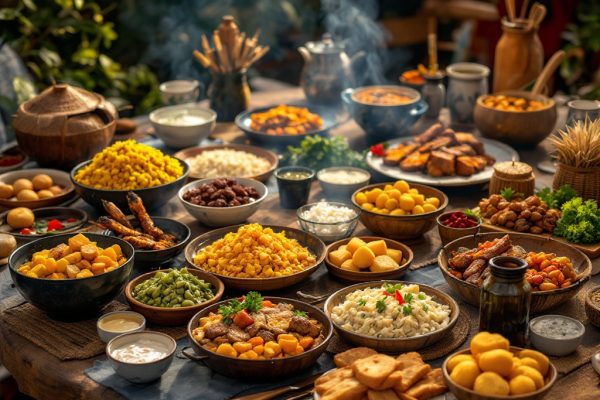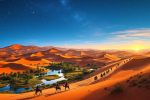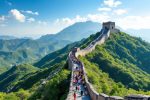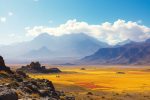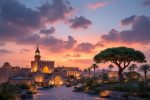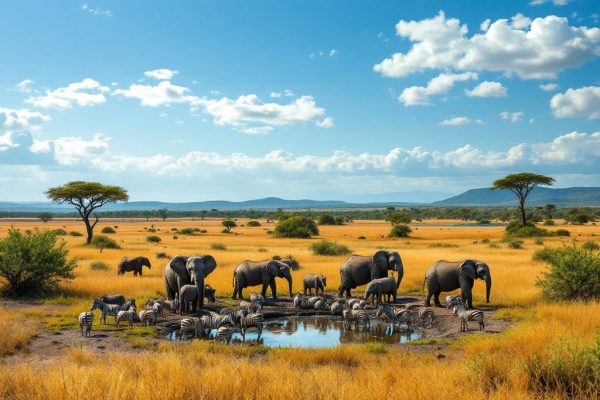Local Festivals and Holidays in Kenya
Discover the vibrant tapestry of Kenyan culture through its diverse festivals and public holidays! From the religious observances of Easter and Christmas to the historical significance of Mashujaa Day and Jamhuri Day, Kenya offers a rich calendar of celebrations. Explore unique cultural events like the Mombasa Carnival and the Lamu Festival, or witness ancient traditions at the Maasai Eunoto ceremony. Learn about the impact of these festivals on preserving tribal identities and fostering community bonds. Delve into the heart of Kenya and experience its rich heritage – read on to start your cultural journey!
Important information
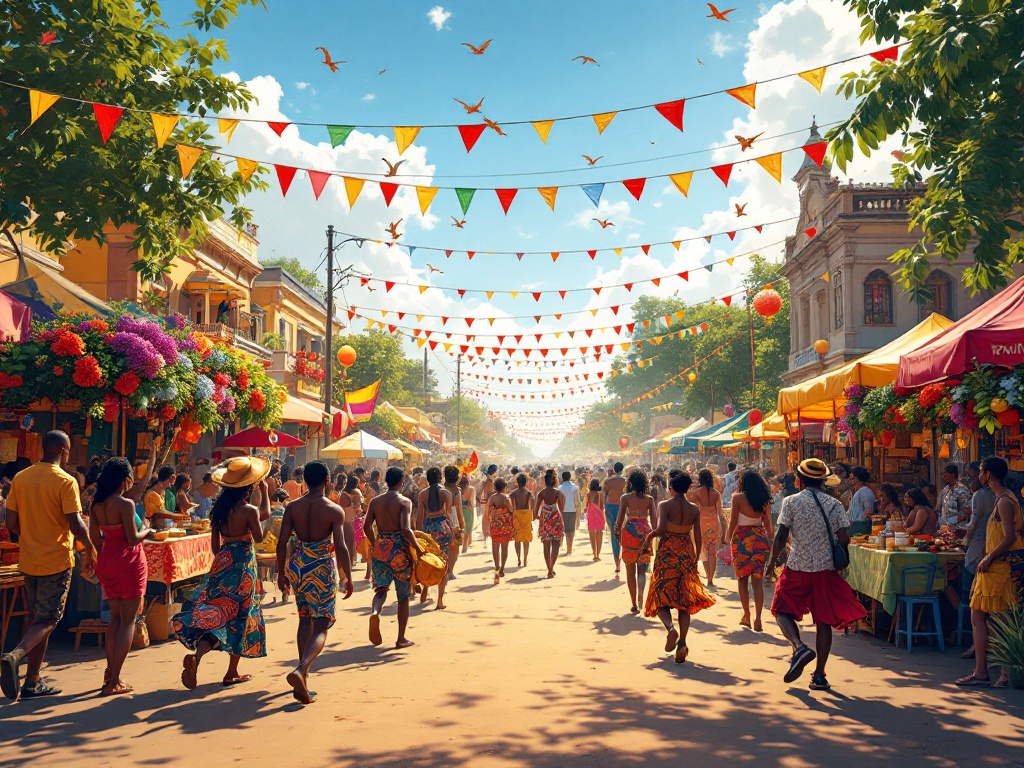
- Kenya observes around twelve public holidays annually, including New Year’s Day, Easter, Labour Day, Madaraka Day, Mashujaa Day, Jamhuri Day, Christmas, and Boxing Day.
- Significant cultural festivals take place throughout the year, such as the Mombasa Carnival, Lamu Festival, and Lake Turkana Festival, showcasing diverse traditions and promoting unity.
- The Maasai Eunoto ceremony is a vital rite of passage for young warriors, marking their transition into elderhood and preserving Maasai heritage.
- Kenya’s nomadic communities, including the Maasai, Samburu, and Turkana, contribute significantly to the nation’s rich cultural heritage through their unique traditions and practices.
- Festivals play a crucial role in preserving tribal identities, strengthening community bonds, boosting local economies, and fostering cultural understanding.
Public Holidays in Kenya
Kenya observes approximately twelve public holidays each year. These include: New Year’s Day (January 1st), Good Friday, Easter Monday, Labour Day (May 1st), Madaraka Day (June 1st), Mashujaa Day (October 20th), Jamhuri Day (December 12th), Christmas Day (December 25th), and Boxing Day (December 26th). Eid al-Fitr and Eid al-Adha vary each year, based on the Islamic calendar. Kenya also observes Mazingira Day. These holidays reflect Kenya’s rich cultural heritage and history.
Overview of Nationally Recognized Holidays
Kenyans observe several significant national holidays. New Year’s Day is often celebrated with church services and vibrant festivities. Mashujaa Day honors the heroes of Kenyan independence. Jamhuri Day commemorates the nation’s independence and republic status. Easter and Christmas are also major holidays, involving both public gatherings and religious observances, reflecting Kenya’s predominantly Christian population.
New Year’s Day
Kenyans celebrate New Year’s Day as a public holiday on January 1st. They often attend church services to mark the beginning of a fresh year and its festivities.
Good Friday
In Kenya, Good Friday is observed by Christians with religious services and quiet reflection, commemorating the crucifixion of Jesus Christ. It is a public holiday in the country.
Easter Monday
Kenyans celebrate Easter Monday as a public holiday, following Easter Sunday. Families gather for festive meals and celebrations.
Labour Day
Kenyans celebrate Labor Day on May 1st with a public holiday recognizing workers’ essential contributions to the national economy. Celebrations include various events and gatherings honoring the workforce.
Madaraka Day
Kenya vibrates with energy on Madaraka Day, June 1st, commemorating the internal self-governance attained in 1963. Parades weave through streets, speeches echo national pride, and music and dance performances highlight Kenya’s rich cultural heritage. This day powerfully symbolizes Kenya’s journey to freedom from British rule, marking a pivotal step toward full independence.
Mazingira Day
Kenya’s Mazingira Day, a public holiday, champions environmental conservation by promoting sustainable practices and raising awareness about critical environmental issues. It’s a call to action, urging everyone to protect our planet.
Mashujaa Day
Kenya celebrates Mashujaa Day, also known as Heroes’ Day, every October 20th. This important holiday commemorates the sacrifices of those who fought for the nation’s independence. Parades, speeches, and cultural performances mark the occasion.
Jamhuri Day
Kenya celebrates Jamhuri Day every December 12th. This important holiday commemorates two key events: independence from Britain in 1963 and becoming a republic in 1964. “Jamhuri” means “republic” in Swahili. The day is marked by celebratory parades, vibrant cultural displays, and speeches reflecting on Kenya’s journey to freedom.
Christmas Day
In Kenya, families gather on December 25th to celebrate Christmas Day. They attend church services and share traditional feasts. This holiday commemorates the birth of Jesus Christ and offers a moment for togetherness and reflection.
Boxing Day
In Kenya, Boxing Day is celebrated on December 26th, a public holiday observed right after Christmas. Many Kenyans use this day for shopping, while others choose to spend time with friends and family. Social gatherings are a key feature of Boxing Day, highlighting the importance of togetherness.
Religious Festivals
Kenya observes two significant religious holidays. Eid ul Fitr, a Muslim celebration, concludes Ramadan, the holy month of fasting. The Maulidi Festival, commemorating the birth of Prophet Muhammad, is hosted in Lamu.
Eid Ul Fitr
Eid ul Fitr, a Muslim holiday, marks the end of Ramadan, the Islamic holy month of fasting. Celebrations involve prayers, feasts, and acts of charity, particularly in places like Mombasa, Kenya. Muslims gather with loved ones, often dressed in new clothes, and exchange gifts. This holiday underscores both community and gratitude.
Maulidi Festival
Experience the vibrant Maulidi Festival in Lamu, Kenya, a colorful celebration of Prophet Muhammad’s birth. A lively parade winds through the streets, filled with music, twirling dancers, and even camel races. Attendees can also enjoy henna painting and thrilling boat races, all showcasing the rich culture and unique traditions of Kenya’s coastal communities.
Cultural Festivals
Kenya’s cultural scene thrives in November with a vibrant array of festivals. Mombasa Carnival electrifies the streets with a dazzling parade, showcasing the country’s rich artistic heritage through elaborate floats, diverse food stalls, and energetic performances. Simultaneously, on Lamu Island, the three-day Lamu Festival immerses visitors in Swahili traditions, featuring intricate henna art, local crafts, evocative poetry, delicious cuisine, and thrilling donkey and dhow races within the historic old town. Around Lake Turkana, the Lake Turkana Festival unites diverse ethnic groups, fostering peace and understanding through shared dances, music, and cultural expressions.
The Turkana Cultural Festival offers a captivating glimpse into the rich traditions of the Turkana people. Experience vibrant dances, mesmerizing music, and engaging storytelling.
The Pokomo Cultural Festival provides an immersive experience, allowing visitors to discover Pokomo traditions through interactive displays. Learn about local crafts directly from the artisans.
The annual Tharaka-Nithi Cultural Festival at Ura-Gate showcases Tharaka history and customs. Enjoy traditional dances, music, and exhibitions.
The Maralal Camel Derby in Samburu County attracts participants worldwide for thrilling camel races and other cultural activities. This event promotes both tourism and cultural exchange.
Mombasa Carnival
Experience the vibrant Mombasa Carnival each November and immerse yourself in Kenyan culture. This exciting festival features a spectacular street parade with floats showcasing Kenya’s rich tribal heritage. Dancers, musicians, and artists, mainly from East Africa, fill the streets with traditional music and dance. Local crafts and delicious food overflow from street stalls, creating a true celebration of Kenyan culture.
Lamu Festival
Experience the vibrant heart of Swahili culture at the annual Lamu Festival, held every November in the historic Lamu Old Town, a UNESCO World Heritage site. This three-day celebration offers an unforgettable immersive experience.
Witness exciting cultural competitions:
- Thrilling dhow races,
- Energetic donkey races.
Immerse yourself in Swahili traditions:
- Enjoy traditional dances,
- Explore the art of henna,
- Savor delicious Swahili cuisine,
- Discover unique local crafts.
From captivating poetry readings to fascinating local customs, the Lamu Festival offers a true cultural immersion.
Lake Turkana Festival
The vibrant Lake Turkana Festival, held annually in Loiyangalani, Marsabit County, Kenya, is a three-day celebration typically occurring in May or June. Over 14 tribes, including the Samburu and Turkana, gather to showcase the region’s rich cultural heritage. Attendees experience a variety of traditions, from captivating dances and music to intricate crafts, diverse food, and unique art forms. The festival not only encourages cultural exchange but also fosters unity and understanding among these diverse communities.
Turkana Cultural Festival
Experience the vibrant Turkana Cultural Festival in Loiyangalani, Marsabit County, Kenya. This annual celebration showcases the rich traditions of northern Kenya’s nomadic communities, including the Turkana and Samburu people. Enjoy captivating music, traditional dances, and admire the unique regional craftsmanship. This immersive festival promotes cultural exchange and understanding, fostering unity among diverse groups. Another essential cultural experience is the Tobong’ulore festival in neighboring Turkana County, offering a further exploration of Kenya’s rich heritage.
Pokomo Cultural Festival
Experience the vibrant culture of the Pokomo people at their captivating Cultural Festival. Witness energetic dances and mesmerizing music, explore fascinating exhibitions, and discover their intricate craftsmanship. Learn about the Pokomo’s unique way of life for an unforgettable cultural experience.
Traditional Tharaka-Nithi Cultural Festival
The Tharaka-Nithi Cultural Festival, held at Ura-Gate, honors the rich heritage of the Tharaka people. This vibrant event showcases traditional dances, captivating music, and cultural exhibitions, offering a true celebration of Tharaka traditions.
Maralal Camel Derby
Every August, the Kenyan town of Maralal hosts the thrilling Maralal Camel Derby. This international event draws visitors worldwide to experience the excitement of camel racing. The multi-day festival offers a variety of activities beyond the main races, including:
- Cycling races,
- Donkey rides, and
- Numerous children’s activities.
The Maralal Camel Derby is a vibrant celebration of Samburu culture and a significant boost to regional tourism. It’s an unforgettable experience.
Traditional and Community Celebrations
The Maasai’s Eunoto ceremony is a pivotal rite of passage, marking the Moran warriors’ transition into elderhood. This signifies their acceptance of the weighty responsibilities associated with this respected role. Other nomadic communities, such as the Samburu, Turkana, and Rendille, also possess rich traditions. Through vibrant storytelling, songs, dances, and intricate crafts, they preserve their unique heritage, strengthen community bonds, and transmit invaluable knowledge to future generations. These cultural celebrations are essential for the survival and flourishing of their traditions.
Traditional Maasai Eunoto Ceremony
The Maasai Eunoto ceremony is a pivotal moment, transforming young men into warriors. This rite of passage, occurring every decade or so, signifies the transition from boyhood to Moran, or junior warriorhood. Rich in tradition, the ceremony features ritual singing and dancing, most notably the Adumu jumping dance. Here, warriors demonstrate their strength and agility, hoping to attract potential partners. The Eunoto plays a vital role in preserving Maasai heritage and strengthening community ties.
Nomadic Communities and Cultural Heritage
Kenya’s nomadic communities, such as the Maasai, Samburu, and Turkana, play a vital role in safeguarding the nation’s rich cultural heritage. Their unique traditions, including distinct languages, ancient practices, and vibrant art forms, represent a living history passed down through generations. These customs enrich Kenya, contributing significantly to its vibrant and diverse cultural landscape.
Significance and Impact of Festivals
Kenyan festivals play a crucial role in safeguarding tribal identities by showcasing unique traditions and fostering cultural pride and understanding. These vibrant gatherings also strengthen community bonds and promote unity. A prime example is the Lake Turkana Festival, which unites over 14 different tribes to celebrate the region’s rich heritage. Another notable event, the annual Maralal Camel Derby, launched in 1990, further bolsters community involvement and displays local culture. These festivals significantly contribute to social cohesion and the preservation of Kenya’s vibrant cultural tapestry.
Preservation of Tribal Identities
Kenyan festivals play a crucial role in safeguarding tribal identities by showcasing distinctive customs and languages, and highlighting important traditions. These vibrant celebrations offer invaluable learning opportunities, connecting younger generations with their heritage and strengthening cultural continuity, fostering a sense of belonging. Tribes like the Maasai, Turkana, and Pokomo particularly benefit from these cultural festivals, which are key to preserving their unique heritage.
Community Gatherings and Social Impact
Kenyan festivals unite diverse communities, fostering cooperation and strengthening social bonds. These gatherings are a powerful platform for cultural exchange, where shared traditions, stories, and experiences create a sense of belonging and collective identity. Moreover, festivals boost local economies through increased tourism and sales of local products, empowering communities economically.

